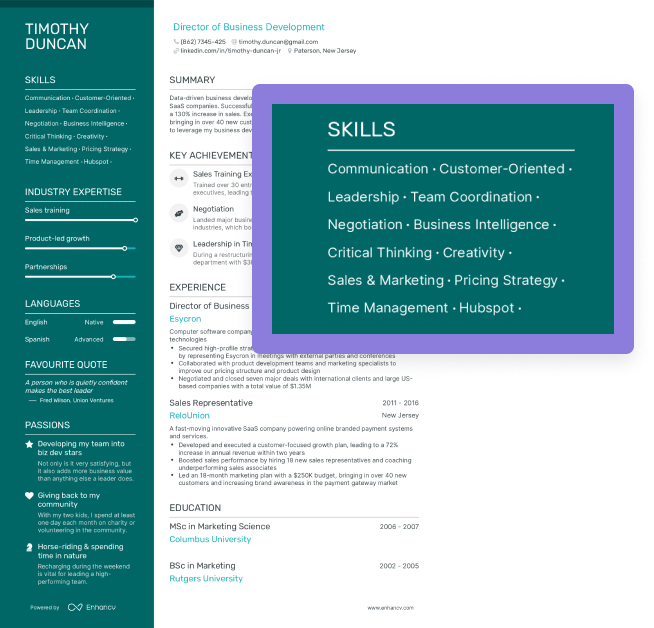Accepting a job offer is exciting, but what happens when circumstances suddenly change? Maybe a better opportunity popped up, or something about the role doesn’t feel quite right anymore.
Whatever the reason, reneging on a job offer isn’t uncommon—but it’s a decision that shouldn’t be taken lightly. There can be professional and sometimes even legal implications. The good news is you have options.
We’ll walk you through the risks, possible consequences, and the best way to handle things professionally so you can make the right call with confidence.
Key takeaways
- Reneging on a job offer carries risks, including damaged relationships and possible penalties.
- While sometimes necessary, backing out should be a last resort, reserved for major life changes, toxic work environments, or significantly better offers.
- How you handle reneging matters—acting quickly, being direct yet polite, and avoiding ghosting can preserve your reputation.
- Students face additional consequences, as some universities track reneging and it can impact future hiring relationships for their peers.
- To avoid this situation in the future, take your time before accepting, ask the right questions, and ensure the role aligns with your goals.
What Does It Mean to Renege on a Job Offer?
Reneging means accepting a position and then withdrawing before your start date, which is different from simply declining an offer.
When you renege, you’ve already signed a contract—so it’s not just a change of mind, but a decision that could carry professional and legal risks. If mishandled, it can damage your reputation, burn bridges with the employer, and even affect your future job prospects. Some contracts might even include financial penalties.
That’s why it’s crucial to approach this situation with caution and ensure you make an informed decision that won’t come back to haunt you.
Is it ever okay to renege on a job offer?
Overall, the consensus is that while reneging isn't ideal, it's sometimes necessary for personal or professional growth.
Here are some valid reasons for doing so:
- A significantly better offer: If another opportunity aligns better with your career goals or offers far better compensation, you may feel compelled to reconsider.
- Personal or family circumstances: Unexpected life events, health issues, or family obligations may make the role unfeasible.
- Negative revelations about the company: If you uncover red flags—like unethical business practices or financial instability—it may be best to back out.
- Visa or relocation issues: Logistical barriers that make it impossible to take the role.
The generational shift in job commitment
According to a recent survey by RippleMatch, 72% of Gen Z job candidates are willing to renege on an accepted job offer if a better opportunity arises. This highlights how younger workers prioritize career growth and flexibility over long-term employer loyalty.
Before deciding to walk away from an accepted job, it's crucial to weigh the potential fallout carefully. Understanding the risks can help you make an informed choice and minimize any negative impact.
In case you’re back on the job market, why not revisit your resume? Our AI-feature resume checker can boost your chances of getting even better job opportunities.
Is your resume good enough?
Drop your resume here or choose a file. PDF & DOCX only. Max 2MB file size.
What Happens When You Rescind an Accepted Job Offer?
Technically, at-will employment in the U.S. allows both the candidate and the company to back out at any point in the recruitment process. However, breaking commitments isn’t pleasant for anyone involved.
The organization has likely invested considerable time and talent in recruiting you—coordinating interviews, reviewing applications, and preparing your onboarding.
While reversing a job acceptance might not ruin your professional future, it can have subtle yet lasting effects on relationships and reputation.
Here are the most common consequences you can expect:
- Damaged relationships: Employers may feel frustrated or misled, which can strain professional connections and make future interactions uncomfortable.
- Burning bridges: Industries are often more interconnected than they appear, and recruiters talk—reneging can leave a lasting impression.
- Legal implications: While most offer letters aren’t legally binding, some contracts include financial penalties or mandatory notice periods, so reviewing your agreement is essential to avoid litigation.
In some extreme cases, the company may contact your new employer, which could result in your offer being rescinded. Additionally, they may blacklist you from future opportunities within their organization.
To avoid these risks, the next sections of this guide explore how to navigate this decision carefully and lessen repercussions.
How to Renege on a Job Offer Professionally
If you must withdraw from an accepted job offer, here’s how to handle it professionally and ethically:
Act quickly
As soon as you know you won’t be taking the job, inform the employer. Delaying the conversation only increases frustration and limits their ability to find a replacement. The sooner you communicate, the more professional and considerate you’ll appear.
Be direct but courteous
It's best to call the employer first, then follow up with a formal email or letter. Be clear, appreciative, and professional. Express gratitude for the opportunity while concisely stating your decision. (For guidance, check out our page on declining a job offer after accepting, where you’ll find multiple templates.)
Be firm about your decision
Once you’ve chosen to renege, stand by it with confidence. This isn’t the time for hesitation or second-guessing. Employers appreciate decisiveness, even in difficult situations.
While backing out of an offer is common in the business world, it doesn’t mean it’s not frustrating for hiring managers. They’ve invested time and resources into your hiring, so a clear and respectful approach helps maintain rapport.
Offer to help (if possible)
While not always necessary, you can ask if there’s anything you can do to ease the transition—especially if you’ve already engaged with the team. Whether it’s recommending a peer or sharing information that might help in their search, a small effort can leave a positive impression.
Avoid ghosting at all costs
Disappearing without a word is the worst way to handle this situation. Ghosting can damage your reputation, especially in tight-knit industries. Even if it’s an uncomfortable conversation, showing professionalism now can pay off later.
Take this as a learning experience and build a reputation as a thoughtful, reliable professional. Below, we offer some practical tips to fail-proof your career.
How to Avoid Backing Out of a Job
If you find yourself reneging, reflect on how you can avoid this in the future. Were there red flags you overlooked? Did you accept too quickly? Being more selective in future job searches can prevent this situation from recurring.
Consider these proactive steps:
- Take your time before accepting: Don’t rush into an offer. Request a reasonable period to evaluate all aspects of the job.
- Communicate with your potential employer: Ask detailed questions about company culture, growth opportunities, and work expectations before making a decision.
- Network within the company: Speak to current employees, if possible, to get an honest view of the workplace.
- Negotiate upfront: If compensation or benefits are a concern, try to address them before signing the offer rather than reneging later.
- Maintain a backup plan: If you’re actively interviewing elsewhere, be transparent about your timeline so employers understand your situation.
- Seek support: Sometimes your family and peers can offer invaluable job-related advice.
How Reneging on a Job Offer Affects Students and Universities
If you're a student or recent graduate, reneging on a job offer can have consequences beyond just your personal reputation. Many universities have strong relationships with employers, offering structured recruitment programs, internships, and full-time job placements.
When students frequently back out of offers, companies may rethink hiring from that school in the future, potentially limiting opportunities for other students. If you're in this position, weigh your options carefully.
Why does this matter?
- Some university career centers track job acceptances and may restrict access to future job postings or career services if a student reneges.
- Employers who experience repeated reneging from a particular school may blacklist the institution or reduce hiring efforts, affecting the broader student body.
- Backing out after a long recruiting process can burn bridges with campus recruiters and hiring managers, making it harder to secure opportunities down the line.
Conclusion
Reneging on a job offer isn’t ideal, but life and careers are unpredictable. If you must back out, do so with integrity, professionalism, and an awareness of the consequences. A thoughtful, respectful approach can help you exit gracefully while keeping your reputation intact.
Make one that's truly you.




